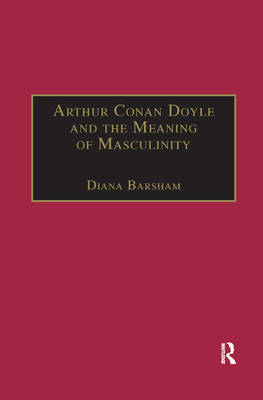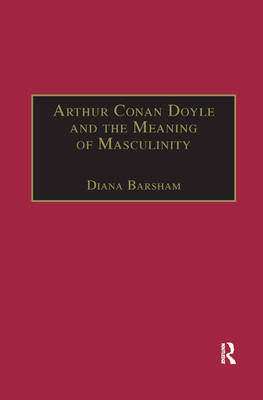
- Afhalen na 1 uur in een winkel met voorraad
- Gratis thuislevering in België vanaf € 30
- Ruim aanbod met 7 miljoen producten
- Afhalen na 1 uur in een winkel met voorraad
- Gratis thuislevering in België vanaf € 30
- Ruim aanbod met 7 miljoen producten
Zoeken
Omschrijving
A valued icon of British manhood, Sir Arthur Conan Doyle has been the subject of numerous biographies since his death in 1930. All his biographers have drawn heavily on his own autobiography, Memories & Adventures, a collection of stories and anecdotes themed on the subject of masculinity and its representation. Diana Barsham discusses Doyle's career in the context of that nineteenth-century biographical tradition which Dr Watson so successfully appropriated. It explores Doyle's determination to become a great name in the culture of his day and the strains on his identity arising from this project. A Scotsman with an alcoholic, Irish, fairy-painting father, Doyle offered himself and his writings as a model of British manhood during the greatest crisis of British history. Doyle was committed to finding solutions to some of the most difficult cultural problematics of late Victorian masculinity. As novelist, war correspondent, historian, legal campaigner, propagandist and religious leader, he used his fame as the creator of Sherlock Holmes to refigure the spirit of British Imperialism. This original and thought-provoking study offers a revision of the Doyle myth. It presents his career as a series of dialoguic contestations with writers like Thomas Hardy and Winston Churchill to define the masculine presence in British culture. In his spiritualist campaign, Doyle took on the figure of St Paul in an attempt to create a new religious culture for a Socialist age.
Specificaties
Betrokkenen
- Auteur(s):
- Uitgeverij:
Inhoud
- Aantal bladzijden:
- 320
- Taal:
- Engels
- Reeks:
Eigenschappen
- Productcode (EAN):
- 9780367888091
- Verschijningsdatum:
- 16/12/2019
- Uitvoering:
- Paperback
- Formaat:
- Trade paperback (VS)
- Afmetingen:
- 156 mm x 233 mm
- Gewicht:
- 589 g

Alleen bij Standaard Boekhandel
+ 116 punten op je klantenkaart van Standaard Boekhandel
Beoordelingen
We publiceren alleen reviews die voldoen aan de voorwaarden voor reviews. Bekijk onze voorwaarden voor reviews.











